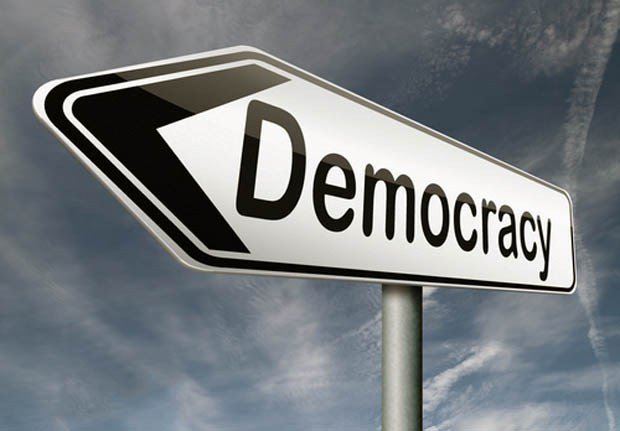
Civis 001/2015
Article 1 point (2) of the 1945 Constitution (UUD 1945) cited: “Sovereignty is in the hands of the people and is done according to the Constitution”. This principal is in accordance with the basic norms in the 1945 Constitution’s Preamble paragraph 4, “Thus the National Independence of Indonesia was arranged in an Indonesian State Constitution that was built in an arrangement of the Indonesian Republican State based on people’s sovereignty…”, and also in accordance with the Five Indonesian State Basic Philosophy (Pancasila), especially the fourth basis.
This principal is very different from the old formulation of Article 1 point (2) of the 1945 Constitution: “Sovereignty is in the hand of the people and is executed entirely by the Majelis Permusyawaratan Rakyat (MPR/People’s Consultative Assembly).” MPR was seen as the representative of all Indonesian people, the bearer of the conscience of the people. The old formulation was a formulation based on the state sovereignty perspective.
From the explanation from Prof. Dr. Soepomo, chairman of the Special Committee that formulated the articles of the old 1945 Constitution, it can be summarized that the view had a similarity with the totalitarian perspective of German Nazi and Japanese Kokutei. In the speech in front of the BPU-PKI (Badan Penyelidik Usaha Persiapan Kemerdekaan Indonesia – The Investigating Committee for Preparatory Work for Indonesian Independence) on May 31st 1945, it was stated: “…this is the totalitarian, integralistic idea of the Indonesians, which is also formed in the original state arrangement planning.” Aside from that, he also stated: “…the flow of thought of the nationalist socialist is the principal of unity between leaders and citizens and unity in the whole state, suits the Eastern flow of thought.”
Basically that thought neglects the people sovereignty and subordinates people under the common interest represented by the state. What is there and important is the common interest. This thought is then implemented by organizing the state as a large family that unites the leader with his people. With such approach the people sovereignty has vanished and replaced with state sovereignty.
The new formation of Article 1 point (2) of the 1945 Constitution returned the message of the 1945 Constitution Preamble that Indonesia is a state with people’s sovereignty. It is executed based on the 1945 Constitution, according to the prerequisites of constitution. Thus our democracy is a constitutional democracy and Indonesia is a Law State. The Constitution is not only a symbol, but also the highest law that has to be obeyed by all sides. Every policy has to be in accordance to the Constitution.

Drs. Jakob Tobing, MPA
President, Leimena Institute
Jakob Tobing is one of the most prominent architects of the new democratic Indonesia. He played an instrumental role in Indonesia’s transition from the authoritarian rule to democracy in 1998. He was then entrusted as the Chairman of the 1999 National Election Committee and the 1999-2004 Parliamentary Commission on the Constitutional Amendment – the two important bodies that decisively replaced authoritarianism with democracy in Indonesia. Under his leadership, the constitutional amendment has guaranteed the principles of democracy, rule of law, and human rights, which is now seen as a model by many other countries. He was a student leader against the old order in 1966, appointed as member of parliament in 1968, and became the Vice Chairman of the ruling party during the Suharto’s regime. But during the height of the authoritarian regime, he joined the opposition and was invited to join and establish the reform PDIP party by its Chairman Megawati Soekarnoputri, who later became the President of Indonesia. President Habibie decorated him with Mahaputera Utama medal in 1999. After more than three decades as a member of parliament, in 2004 he was appointed as the Indonesian Ambassador to the Republic of Korea, a leadership role which again he performed so outstanding that the Republic of Korea awarded him the Gwanghwa medal—the country’s highest diplomatic award. He received his graduate degree from the John F. Kennedy School of Government, Harvard University, USA.
